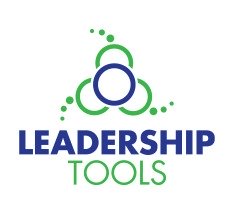Code-of-Ethics
A Code-of-Ethics clarifies the behavioral expectations for a specific organization and/or role.

Donna Rae Scheffert, President, Leadership Tools is a consultant with thirty years of experience propelling teams toward their goals quicker while having more fun.
Sample Code-of-Ethics
A Code-of-ethics outlines the expectations for a specific role. The person who is fulfilling the role has responsibilities to others to uphold these principles. Common ethical expectations include: honesty, integrity, promise-keeping, fairness, concern for others, respect for others, responsible citizenship, pursuit of excellence, personal accountability, loyalty, and independent objective judgment.
A. HONESTY
(1) being truthful, sincere, forthright and, unless professional duties require confidentiality or special discretion, candid, straightforward and frank;
(2) not cheating, stealing, lying, deceiving, acting deviously, nor intentionally misleading another by omission, half-truth or other means.
B. INTEGRITY
(1) acting in ways that are consistent with core beliefs and assuring that practices are congruent with principles;
(2) honoring and adhering to their own moral beliefs with courage and character regardless of personal, political social and economic pressures;
(3) expressing and fighting for their concept of what is right and upholding their convictions to the best of their ability.
C. PROMISE-KEEPING
(1) keeping promises, fulfilling commitments and abiding by the letter and spirit of agreements which bind them;
(2) interpreting contracts and other commitments in a fair and reasonable manner and not creating justifications for escaping a commitment;
(3) exercising prudence and caution in making commitments, considering that unknown or future factors might arise which could make fulfillment of them difficult;
(4) seeking to assure that when commitments are made, the nature and scope of the obligations undertaken are clear to all parties.
D. FAIRNESS
(1) making decisions with professional objectivity based on consistent and appropriate standards;
(2) demonstrating a commitment to the equitable treatment of individuals and an appreciation for diversity in all actions;
(3) exercising open mindedness and a willingness to seek out and consider all relevant information, including opposing perspectives;
(4) voluntarily correcting personal or institutional mistakes and improprieties and refusing to take unfair advantage of mistakes or ignorance of citizens;
(5) scrupulously employing open, equitable, and impartial processes for gathering and evaluating information necessary to decisions.
E. CONCERN FOR OTHERS
1) striving to carry out official and managerial responsibilities with a firm commitment to maximize benefits and minimize harm;
(2) being caring, considerate, compassionate and generous while carrying out their official duties.
F. RESPECT FOR OTHERS
(1) acknowledging and honoring the right of those affected by decisions to autonomy, privacy, and dignity;
(2) treating others with courtesy and decency;
(3) exercising authority in a way that provides others with the information they need to make informed decisions.
G. PURSUIT OF EXCELLENCE
(1) being diligent, reliable, careful, prepared, and informed;
(2) giving a full day's work for a full day's pay;
(3) continually seeking to develop knowledge, skills and judgment necessary to the performance of their duties.
H. PERSONAL ACCOUNTABILITY
(1) accepting personal responsibility for the foreseeable consequences of actions and inactions;
(2) recognizing their special opportunity and obligation to lead by example;
(3) making decisions that take into account long term interests and the need to exercise leadership for posterity.
I. LOYALTY
(1) advancing and protecting the interests of those with legitimate moral claims arising from personal and institutional relationships;
(2) safeguarding confidential and proprietary information;
(3) refusing to subordinate other ethical obligations such as honesty, integrity, fairness and the obligation to make decisions on the merits, without favoritism, in the name of loyalty.
J. INDEPENDENT OBJECTIVE JUDGMENT
(1.) employ independent objective judgment in performing their duties,
(2.) deciding all matters on the merits, free from conflicts of interest and both real and apparent improper influences.

Leadership Tools
For more information on Code-of-Ethics
Facilitation. Training. Strategic Planning.
Donna Rae Scheffert
809 Mayflower Ct.
Northfield, MN 55057
Let me assist you and your organization. Call me at 612.360.4484
